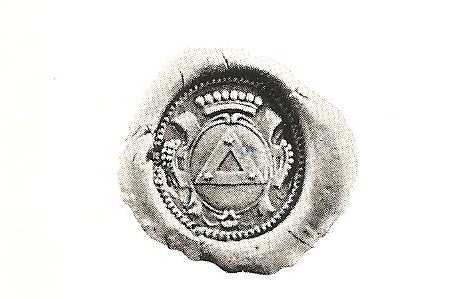|
Nobelite
Nobelite was the common designation of the tens of thousands of employees of the companies owned by the Nobel family in Russia during the 19th century and until the Russian Revolution, such as Branobel and the Machine-Building Factory Ludvig Nobel. The term originated from the pride and loyalty of Nobel family's employees, who enjoyed the benefits of a special worker's welfare program devised by Ludvig Nobel. Nobelite labor conditions were far different from those usually enjoyed by other Russian workers of the time and stood out as an unparelelled humanitarian concern in the Russian Empire. Nobelites were given decent housing, medical care, technical training and elementary education for their children. Ludvig Nobel also abolished child labour in his companies and shortened work hours while establishing a workers' savings bank A savings bank is a financial institution that is not run on a profit-maximizing basis, and whose original or primary purpose is collecting deposits on s ... [...More Info...] [...Related Items...] OR: [Wikipedia] [Google] [Baidu] |
Nobel Family
The Nobel family ( ), is a prominent Swedish family closely related to the history both of Sweden and of Russia in the 19th and 20th centuries. Its legacy includes its outstanding contributions to philanthropy and to the development of the armament industry and the oil industry. Some of its foremost members are Immanuel Nobel the Younger, the engineer, developer of underwater naval mines and inventor of the rotary lathe used to produce plywood, Ludvig Nobel, the founder of Branobel and one of the richest and the most important men in Russia at his time, and Alfred Nobel, the inventor of dynamite who left the major part of his estate to the creation of the Nobel Prizes. Origins The Nobel family originated from the Scanian village of Östra Nöbbelöv, hence their surname. The first member was Petrus Olai Nobelius (1655–1707) who married Wendela Rudbeck (1668–1710), sister of Olof Rudbeck the Younger, daughter of the famous Swedish scientist Olaus Rudbeck the Elder a ... [...More Info...] [...Related Items...] OR: [Wikipedia] [Google] [Baidu] |
Ludvig Nobel
Ludvig Immanuel Nobel ( ; ; ; 27 July 1831 – 12 April 1888) was a Swedish-Russian engineer, a noted businessman and a humanitarian. One of the most prominent members of the Nobel family, he was the son of Immanuel Nobel (also an engineering pioneer) and Andriette Nobel, and the older brother of Alfred Bernhard Nobel, Alfred Nobel (founder of the Nobel Prize). With his brother Robert Nobel, Robert, he operated Branobel, an oil company in Baku (now in Azerbaijan) which at one point produced 50% of the world's oil. He is credited with creating the Russian oil industry. Ludvig Nobel built the largest fortune of any of the Nobel brothers and was one of the world's richest men. Following the Bolshevik revolution, the communists confiscated the Nobel family's vast fortune in Russia. Early history Nobel was born in Stockholm. At 28 years old, he was given by his father's creditors the technical management of the family business, Fonderies et Ateliers Mécaniques Nobel Fils, a factory ... [...More Info...] [...Related Items...] OR: [Wikipedia] [Google] [Baidu] |
Russian Revolution (1917)
The Russian Revolution was a period of political and social change in Russia, starting in 1917. This period saw Russia abolish its monarchy and adopt a socialist form of government following two successive revolutions and a civil war. It can be seen as the precursor for other revolutions that occurred in the aftermath of World War I, such as the German Revolution of 1918–1919. The Russian Revolution was a key event of the 20th century. The Russian Revolution was inaugurated with the February Revolution in 1917, in the midst of World War I. With the German Empire inflicting defeats on the front, and increasing logistical problems causing shortages of bread and grain, the Russian Army was losing morale, with large scale mutiny looming. Officials were convinced that if Tsar Nicholas II abdicated, the unrest would subside. Nicholas stepped down, ushering in a provisional government led by the Duma (parliament). During the unrest, Soviet councils were formed by locals in ... [...More Info...] [...Related Items...] OR: [Wikipedia] [Google] [Baidu] |
Branobel
The Petroleum Production Company Nobel Brothers, Limited, or Branobel (short for братьев Нобель "brat'yev Nobel" – "Nobel Brothers" in Russian), was an oil company set up by Ludvig Nobel and Baron Peter von Bilderling. It operated mainly in Baku, Azerbaijan, but also in Cheleken, Turkmenistan. Originally established by Robert Nobel (who contributed 25,000 rubles) and the investments of barons Peter von Bilderling (300,000 rubles) and Standertskjöld (150,000 rubles) as a distillery in 1876, it became, during the late-19th century, one of the largest oil-companies in the world. History The Nobel Brothers Petroleum Company was an oil-producing company that had its origins in a distillery, founded by Robert and Ludvig Nobel in Baku in 1876, which, in 1879, turned into a shareholding company headquartered in St. Petersburg. The share capital of three million rubles was divided as follows: 53,7% Ludwig Nobel, 31,0% Baron Peter von Bilderling, 4,7% I.J. Zabelsk ... [...More Info...] [...Related Items...] OR: [Wikipedia] [Google] [Baidu] |
Russian Empire
The Russian Empire was an empire that spanned most of northern Eurasia from its establishment in November 1721 until the proclamation of the Russian Republic in September 1917. At its height in the late 19th century, it covered about , roughly one-sixth of the world's landmass, making it the list of largest empires, third-largest empire in history, behind only the British Empire, British and Mongol Empire, Mongol empires. It also Russian colonization of North America, colonized Alaska between 1799 and 1867. The empire's 1897 census, the only one it conducted, found a population of 125.6 million with considerable ethnic, linguistic, religious, and socioeconomic diversity. From the 10th to 17th centuries, the Russians had been ruled by a noble class known as the boyars, above whom was the tsar, an absolute monarch. The groundwork of the Russian Empire was laid by Ivan III (), who greatly expanded his domain, established a centralized Russian national state, and secured inde ... [...More Info...] [...Related Items...] OR: [Wikipedia] [Google] [Baidu] |
Child Labour
Child labour is the exploitation of children through any form of work that interferes with their ability to attend regular school, or is mentally, physically, socially and morally harmful. Such exploitation is prohibited by legislation worldwide, although these laws do not consider all work by children as child labour; exceptions include work by child artists, family duties, supervised training, and some forms of work undertaken by Amish children, as well as by Indigenous children in the Americas. Child labour has existed to varying extents throughout history. During the 19th and early 20th centuries, many children aged 5–14 from poorer families worked in Western nations and their colonies alike. These children mainly worked in agriculture, home-based assembly operations, factories, mining, and services such as news boys—some worked night shifts lasting 12 hours. With the rise of household income, availability of schools and passage of child labour laws, the inc ... [...More Info...] [...Related Items...] OR: [Wikipedia] [Google] [Baidu] |
Savings Bank
A savings bank is a financial institution that is not run on a profit-maximizing basis, and whose original or primary purpose is collecting deposits on savings accounts that are invested on a low-risk basis and receive interest. Savings banks have mostly existed as a separate category in Europe. Savings banks originated in late-18th century Europe as a development of the Enlightenment, and became a Europe-wide phenomenon in the first half of the 19th century. The trajectories of savings bank systems then diverged across European nations, variously leading to the formation of integrated banking groups, cohesive national networks, conversion into cooperative banking or commercial banking entities, and/or piecemeal consolidation with other credit institutions. In most countries, the surviving savings banks have private-sector status and no longer operate under a distinctive legislative framework; significant exceptions include Germany and Luxembourg, where savings banks are public ... [...More Info...] [...Related Items...] OR: [Wikipedia] [Google] [Baidu] |



